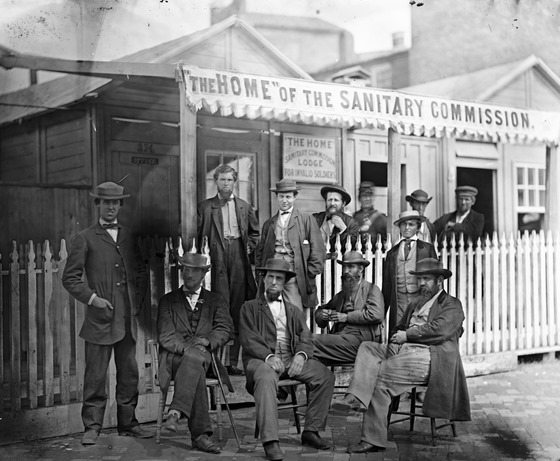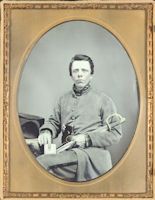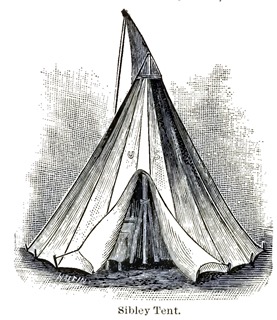[Diary] June 11.
After school I went to Beaufort and to Mr. Judd’s.1 Mr. Pierce was there and tried to frighten me by representing the important nature of the report, etc., Colonel McKaye came into the parlor with Mr. Winsor, the phonographic reporter. He proceeded to ask and I to answer questions as definitely and shortly as possible. Presently Miss Kellogg came into the room and Colonel McK. looked a little annoyed, for he had said he wished to talk to me alone; I suppose so that I could speak without bias. Presently Mr. Winsor stopped reporting, and Mr. McK. wanted to know why. He said he was suffering from such a severe headache that he could not proceed. This broke up the conference. Colonel McK. then said the Government would pay any expense I had been at in coming to Beaufort to testify, and when I said there was none at all, he said he had wanted to give Aunt Phyllis a present and gave me five dollars to buy a gown for her. I then took my leave. I had to go home, and Miss K. lent me her waterproof, as a thunderstorm was just coming up. Mr. Pierce and Captain Hooper crossed in the special boat with me, for it was too late for the ferry. The rain began to fall as we stood under the shelter of the shed at the ferry, and the gentlemen were caught in the storm going home. I drove Betty in a sulky and Captain Hooper made his little Ben mount on the seat behind to hold the umbrella over me. I had my pretty new hat on one arm, Ellen’s basket on the other under the waterproof, and I rode along bare-headed. The storm came up furiously. I never heard or imagined such thunder, nor saw such lightning. I knew Betty shied at guns, and I was afraid the thunder cracks would make her wild or jump sideways just as we were on some narrow causeway, with water on each side of us, for the tide was up. Ben held the umbrella manfully and I was not very wet, though the rain came in torrents. At last, when we were in the very causeway which I had feared, there came a crack of thunder and flash at the same moment. Betty shied, but not much. I said, “Ben, are you afraid?” “No, ma’am,” he answered with a cool, comfortable tone of voice that testified to his truth. It was more than I could say. We approached Eustis’ bridge and here was a real terror to me, for the cloud overhead was not expended and the thunder was terrific. If Betty shied on the approach to the bridge, we should plunge into a strong, deep, swift stream. Just as I was summoning courage for the trial, I saw by a flash that there was a horseman coming towards me and I felt sure it was Mr. Tomlinson.2 “I came to find you,” he said; and he wanted to know how he could help me. I told him only by riding along and pulling me out of the water if Betty plunged me in. Thus we rode along, I wonderfully reassured by having someone else in the same predicament. Near the bridge came the expected crash, but Betty, also reassured by company, did not start. A tree was struck just the other side of the bridge. Once again, before we got home, a flash and crack came together, exactly like the discharge of a cannon, and Betty sprang to one side. But we reached home safely, and I had to wade over shoe-tops to the steps in the back yard, into which we drove at once. Ellen was overjoyed that we had not been struck in the terrible storm. I found my hat only a little injured.
1 General Superintendent of Port Royal Island.
2 General Superintendent of St. Helena and Ladies Island, succeeding Richard Soule, Jr.













